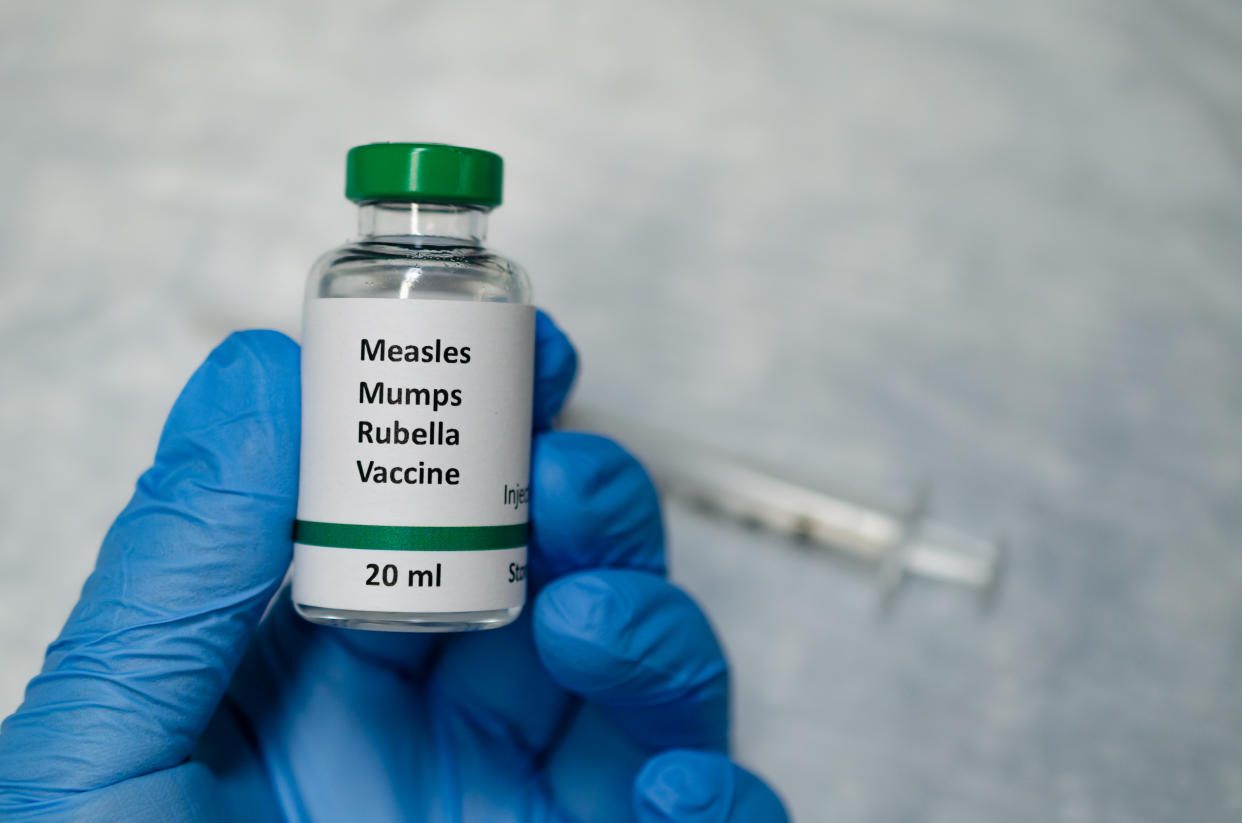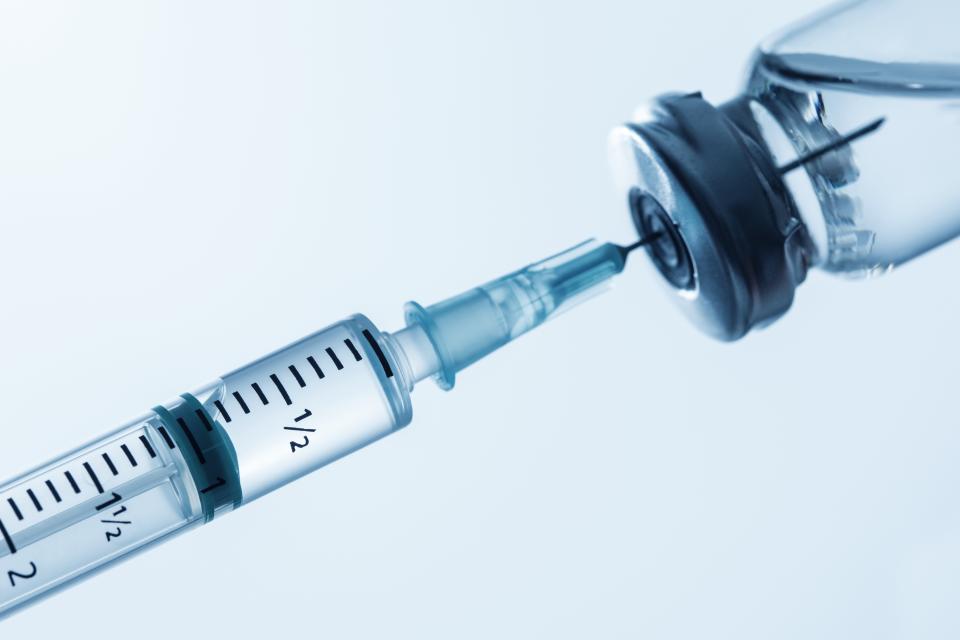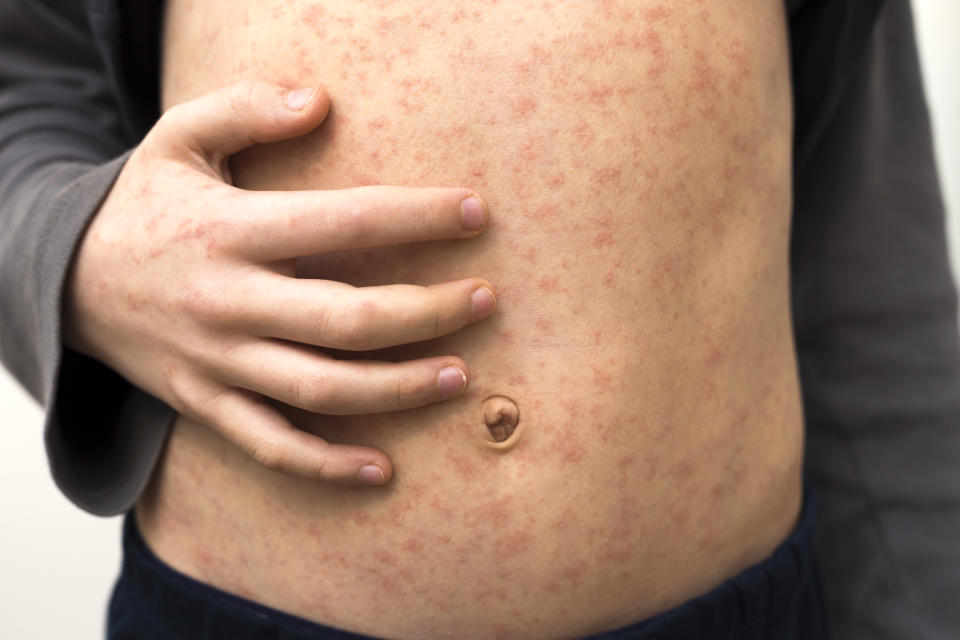MMR vaccine is effective and does not cause autism, study confirms

The measles, mumps and rubella (MMR) vaccine is both safe and effective, research has confirmed.
Measles and mumps are on the rise in England and Wales after immunisation rates plummeted.
Safety fears have been linked to the now-discredited gastroenterologist Andrew Wakefield, who mistakenly linked the MMR vaccine to autism.
To prove the jab’s safety, a Cochrane review – considered the gold-standard of research – looked at 138 studies.
Read more: Coronavirus may trigger a measles resurgence as vaccinations are 'paused'
Results show the recommended two doses of the MMR jab are up to 96% effective at warding off the infections.
In terms of safety, autism rates were found to be similar between the vaccinated and unvaccinated participants.
The scientists stress “the risks posed by these diseases far outweigh those of the vaccines administered to prevent them”.

Falling vaccination rates in England
Children in the UK are routinely given the MMR jab.
The first dose is administered when a child is around 12 to 13 months, followed by a booster at three years and four months.
NHS Digital data shows 94.5% of five-year-olds in England were immunised with the first MMR dose in 2018/19, down from 94.9% in 2017/18 – both below the 95% immunisation target.
Even if not everyone has been vaccinated, having an immunisation rate of 95% can ward off an outbreak due to “herd immunity”.
This occurs when a sufficient number of people have been vaccinated to prevent an infection “taking hold”.
Herd immunity protects those who may be unable to have a jab, such as cancer or HIV patients.
When it comes to the second MMR dose, 86.4% of five-year-olds in England were immunised in 2018/19, down from 87.2% the year before.
Measles and mumps on the rise
In 2017, the World Health Organization declared the UK had “eliminated measles” based on 2014-16 data.
This was reversed when 991 confirmed cases came to light in England and Wales in 2018.
Mumps has also hit a decade high in England.
Outbreaks in universities and colleges led to 5,042 mumps cases in 2019, four times as many as in 2018.
This is the highest cases have reached since 7,301 incidences were reported in 2009.
Read more: Mumps hits decade high in England
Reluctance to take up the MMR vaccine may date back to the Wakefield scare story, which hit the headlines in the 1990s.
The paper, published in the prestigious journal The Lancet, has since been retracted and Wakefield struck off.
Its “data” has been called “bogus”, as well as “fatally flawed both scientifically and ethically”.
Dr Mary Ramsay, head of immunisation at Public Health England, has previously noted that uptake of the second MMR dose is markedly lower than the first.
“The decline is not in commencing vaccination but in completing courses,” she said.
Rubella rates have managed to stay low, with just three confirmed cases in England and Wales in 2019.

Safety fears lack ‘rigorous scientific evidence’
To demonstrate the MMR vaccine’s safety and efficacy, scientists from Italy’s regional epidemiology unit SeREMI analysed more than 100 studies.
In terms of effectiveness, one dose was found to be 95% effective at preventing measles.
Among children who do not receive the first dose, 7% would be expected to catch measles, compared to less than 0.5% of immunised youngsters.
After two doses, efficacy seems to rise marginally to 96%.
When it comes to mumps, one dose was found to be 72% effective, rising to 86% after two doses.
If given both doses, just 1% of children are expected to catch mumps, compared to 7.4% of those who receive neither jab.
One MMR vaccine dose was also found to be 89% effective at warding off rubella.
Read more: Why are fewer people getting vaccinated?
“In terms of safety, we know from previous studies all around the world that the risks posed by these diseases far outweigh those of the vaccines administered to prevent them,” said lead author Dr Di Pietrantonj.
“In this review, we wanted to look at evidence for specific harms that have been linked with these vaccines in public debate, often without rigorous scientific evidence as a basis.”
The scientists looked at autism rates among more than 1.1 million children.
Results suggest that for every 100,000 unvaccinated children, the team would expect 451 diagnosed cases of autism.
Among vaccinated youngsters, the expected rate would be 419/100,000.
Previous studies have found no link between the jab and Crohn’s disease, type 1 diabetes, multiple sclerosis, asthma, leukaemia or an increased risk of infections.
“Overall we think existing evidence on the safety and effectiveness of [the MMR vaccine] supports [its] use for mass immunisation,” said Dr Pietrantonj.
“Campaigns aimed at global eradication should assess epidemiological and socioeconomic situations of the countries as well as the capacity to achieve high vaccination coverage.
“More evidence is needed to assess whether the protective effect of [the vaccine] could wane with time since immunisation.”
The MMR vaccine is said to be less effective at protecting against mumps than measles or rubella.
“We know the immunity from mumps vaccine can wane over time,” Professor Helen Bedford from University College London previously said.
“This means you can still get mumps even if fully vaccinated.
“Although mumps can be nasty especially in people past puberty, it is usually much milder in previously vaccinated people, so the best way to avoid mumps is to get the vaccine.
“If you haven’t been vaccinated, it’s never too late to have the MMR vaccine.”
Dr David Elliman, a consultant in community child health, added: “If someone is not sure whether they have had two doses of vaccine, they should go to their GP.
“No harm will come if they have extra doses.”

What are mumps and measles?
Mumps is a highly contagious viral infection defined by painful swelling in the side of the face under the ears, leading to a “hamster” appearance.
It can also trigger headache, joint pain and fever.
Most cases pass in a week or two with rest, fluids and painkillers.
Around one in seven sufferers, however, develop viral meningitis. Other complications include inflammation of the pancreas, testicles or ovaries.
Measles is a highly infectious virus that commonly causes cold-like symptoms, a fever and a blotchy rash.
Most cases pass within 10 days, but it can trigger life-threatening pneumonia and inflammation of the brain.
Both measles and mumps mainly spread via infected droplets expelled in a cough or sneeze. The viruses can also survive for several hours on surfaces.
Neither infection has a specific treatment or cure. Therapies focus on keeping the person comfortable while their immune system fights off the infection.
Vaccination is the best way to ward off the viruses.



